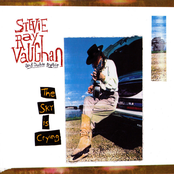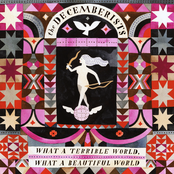Via my wonderful friends at Strictly Black Country a wonderful short film, which they posted a link to on their Facebook page yesterday:
If you’ve got 10 minutes you should watch this:
‘Luv’in the Black Country is a short cinematic documentary about the romantic Black Country canals, and how the first love stories of three different people connect them to this historic area. The film is a lyrical love letter to the Black Country, its people and their fading identity.’
How wonderful is this? While you’re over there, why not check out their fantastic work?


 RSS - Posts
RSS - Posts









Hi Bob
Super film….love the definition of work…
David
Lovely indeed, very nicely shot, well worth watching directly on YouTube and selecting a high definition option. Good old-style Black Country accent on the lady at the end, Jeni Hatton. Sounds like a smoothed-out version of my uncle Albert. I now want to track down that documentary from which the opening and closing scenes were taken, ‘The Black Country’, apparently shot for ATV Today, 07 April 1969 (the broadcast date, I assume).
I experienced a certain sadness whilst watching this little film. Not merely nostalgia, for I well remember those times, but for the striking likeness between life on the canal and the ‘boy meets girl’ syndrome, to which most of us succumb, sooner or later.
I remember canals when they were still quite busy. One did not have to wait too long for a fully laden barge to come along, pulled by a horse who although highly unlikely to win a rosette at any horse show, knew his way around the towpath and junctions, better than we did. A few yards behind, depending on the length of the tow rope, came the barge. If you were on the canal doing a spot of early morning fishing, the smell of bacon would drift over as the bargee or his wife cooked the breakfast above deck. The barge would move along at a leisurely pace, hardly disturbing the water, leaving your float bobbing gently in the backwash. No hurry, The pace of canal life was inextricably linked to the pace of the horse.
This unhurried approach was echoed in the approach to matrimony, at that time, No ‘marry in haste, repent at leisure’ then, not very often, anyway. Of three accounts given, both men knew their partners from an early age, and progressed from there. The lady knew her future partner as the factory tea boy at fifteen and married him some years later, after the young man had put himself through two weekly visits to the cinema and a neck full of fleabites, just to be shown to his seat by his beloved in the darkened cinema.
Deeply touching was this lady’s recollection of the demise of this bygone age, and her final words, ……”They stole our souls”. How very true. I get misty-eyed myself at the loss of all those values we held dear. Yes, some things have improved as civilisation marches on, but like many of my generation, I think we lost more than we have ever gained, over the last fifty years or so..
Hi David.
You might well think that – I’d beg o differ.
Old chap I used to work with – he’d be over 100 now if he was still alive.
‘Good old days, Bob?’ he’d say, ‘I lost half me brothers and me father by the time I was 14. I’m living in my good old days, right here, right now. I’ve got a warm house and food in the pantry, a beer when I fancy.’
Like so many things in life, the way one views the past depends on how fortunate one was at the time. It’s all relative.
Cheers
Bob
Hi Bob,
Seems we are comparing two different sets of dates, here. Your old workmate, according to your reckoning of ‘over a hundred, now’, would have been born in the early part of last century, probably most active in his working life, between the wars, when conditions were hard. My own comment says ‘fifty years or so’ which would go back only to the 1960’s. Like your friend, I had a warm house to live in, food in the pantry and money for a pint, the same as your friend would have enjoyed who at the time, say sixtyish, would probably still be around, so the “good times “ coincided for both of us. If he was comparing life in the 1920’s/1930’s to life in the ‘60’s, yes, his comments were well-founded.
My point was, that the ‘quality of life’ had diminished between then and now. I was careful to put, ‘for members of my own generation’ which would probably exclude most readers of the blog, who, no doubt would staunchly defend their own modern times, as your own contribution appears to do. In the 1960’s as well as food and warm shelter, plus the price of a pint, we had virtually full employment, a five day week, tolerably good working conditions, muggings were unheard of, football matches where rival supporters shared the same enclosures, no baying across the ground to each other, like packs of angry dogs, hatching up who could conjure the filthiest insult to a rival footballer. Morecambe and Wise on TV, watched with the family around you, instead of the modern stand-up comedians, who seem to rely on expletives every few words, to attract the laughs. Working people buying houses.
What have we got now? Very little work, most of it at minimum wage or just over. Call centres, where the workers are more regimented than battery hens, but have to stick it out, because there’s nothing else, sky high fuel bills with more to come. Remember the old “uncles”, the pawnshop where you could pawn Dad’s best suit for a few days and redeem it later, on payment of a small premium, strictly controlled. That’s gone. In its place we have these fast loan companies, springing up like mushrooms, where a couple of clicks with the computer mouse with bring you a loan with an APR of 3000% or so. Notice the increase of houses to rent? People can’t afford the deposit to buy. Before the war, most working people lived in rented homes, only the rich could afford to buy. Fancy a pint? Turn left and carry on walking, past three former favourite pubs, all dark and shuttered up unti l you reach the town. At 2 am in the morning, the fun really starts, talk about the old gin palaces of Victorian times, drunks lying all over the road as police attempts to deal with them. Going home? Mind you don’t get mugged and look out for all those cardboard boxes, there’s sleepers lying in them. Feel hungry? More and more organisations are attempting free food issues, in an attempt to deal with the problem. Churches and chapels are packing up food parcels to last for three days, always more recipients than available food. Modern soup kitchens !! well. Yes, it’s the same thing. So there’s no rich people left – everyone’s poor? Well, not exactly, bankers are doing well and executives measure their salaries by the half million, with workers wages and salaries, strictly controlled.
The social engineering that has brought us to this is still acclaimed by some as social progress . and to modern minds, ‘that’s how things are’ as we used to say in the 1930’s, as we’d seen nothing better. I find it very sad, myself. I have seen better and so have many of my generation. We are probably in the same position as you will be at mid-century, Bob, …”yes, the early years of the century was the time to be alive”…and the young bloods of the time will all shake their heads and say , “Well, you may say that, but I’d beg to differ”.
Cheers.
Hello David.
I respect your point of view, but anyone who’s spent as long in the newspaper archive as I have, and talked to so many, can both see the truth and the gloss in that which you assert.
The golden age of everything was our youth, regardless of when that may have been. That’s the human condition. Was it not that miserable old Greek Socrates who said,
‘The children now love luxury; they have bad manners, contempt for authority; they show disrespect for elders and love chatter in place of exercise. Children are now tyrants, not the servants of their households. They no longer rise when elders enter the room. They contradict their parents, chatter before company, gobble up dainties at the table, cross their legs, and tyrannize their teachers.’
For instance, your assertion that muggings were unheard of isn’t borne out by the news record, and drunken violence seems as depressingly common as is ever was. Whilst you may abhor call centres, I saw the tyranny of piecework and haven’t spent 5 years documenting mining history without becoming aware of the privations. The working class are still at the bottom, only the environment alters.
One of the reasons I dedicate so much time to this blog is to tell the actuality of things, hopefully helping in a small way to correct misconception and explore the concept that whilst the good old days may have been in parts excellent, human psychology is adept at neglecting the bad.
Exploring the past is light and shade, but it’s best done with feet in the present and facing forwards. I love your work and value every contribution, but on this one I’ll beg to differ.
Cheers
Bob
You can get to watch this on the community channel on sky TV, it’s one of the programs that gets rotated around on there.
”They stole our souls”
But who were “they”
As we can see reading this blog Souls seem to have been stolen for a lot longer than 50 years
“They stole our souls”, as stated in the video refers to the foreign buyers who bought the factory. I understand the term to mean the ‘spirit’ of the Black Country. People became dispirited after heavy industry left the area, being their accustomed type of work. Don’t know where the 50 years comes in.
David,
You say in your first comment…
“How very true. I get misty-eyed myself at the loss of all those values we held dear. Yes, some things have improved as civilisation marches on, but like many of my generation, I think we lost more than we have ever gained, over the last fifty years or so..”
I can see why anyone can argue that the “values” have dropped over the period you state. The cases of Jimmy Saville, pedophilia in the Churches, gutter press as seen in the Leverson Inquiry, cover ups at Orgreave and Hillsborough.
But when looking back beyond a certain point, the age of the observer really doesn’t matter.
So if we travel back in time, what was the “spirit” of the Black Country from say 1850 to 1930? Was it different from that which you speak of?
My opinion, as can be seen on the Blog, is that during that period there must have been many dispirited people. Their souls had been stolen, not by foreign buyers, but by exploitation of the coal owners.
Of course it was not just the coal owners, although many had several irons in the fire.
Pingback: Well versed | BrownhillsBob's Brownhills Blog